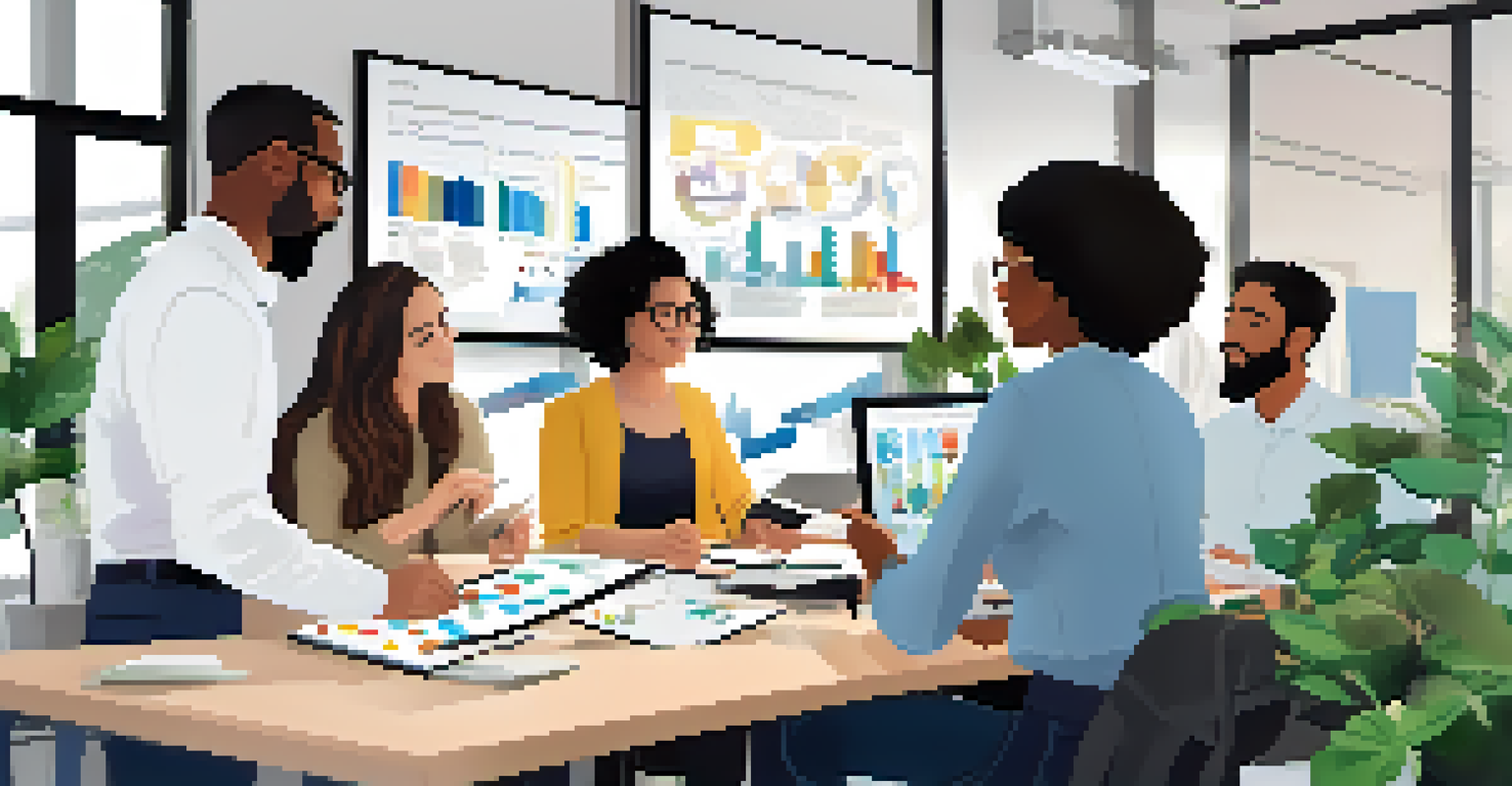The Importance of Lifelong Learning for Adaptability

Understanding Lifelong Learning and Its Relevance
Lifelong learning is the continuous, voluntary pursuit of knowledge for personal or professional development. In an age where change is the only constant, embracing this mindset is crucial. It helps individuals stay relevant in their careers and adapt to new challenges effectively.
The beautiful thing about learning is that no one can take it away from you.
Think of lifelong learning as upgrading your smartphone: just as you need the latest software to keep your device functional, you need to update your skills to remain competitive in the job market. This approach not only fosters personal growth but also enhances employability.
By actively engaging in lifelong learning, you cultivate a curious mindset, which is essential for navigating the complexities of modern life. This adaptability allows you to respond to shifts in your environment, whether they are technological advancements or evolving industry standards.
The Connection Between Learning and Adaptability
Adaptability is the ability to adjust to new conditions, and lifelong learning is a powerful tool to enhance this trait. When you learn new skills, you train your brain to think differently and approach problems with a fresh perspective. This flexibility is invaluable in today’s fast-paced world.

Imagine a chameleon that changes its color to blend into its environment. Lifelong learners have a similar ability: they can change their skills and knowledge to fit various situations, making them more resilient in the face of change. This adaptability is not just beneficial but necessary in many professions.
Lifelong Learning Drives Adaptability
Continuous learning equips individuals with the skills needed to adjust to new challenges and environments.
Moreover, the more you learn, the more confident you become in your ability to tackle challenges. This self-assurance reduces fear of the unknown and empowers you to take risks, which can lead to unexpected opportunities and growth.
Cultivating a Growth Mindset Through Continuous Learning
A growth mindset is the belief that abilities and intelligence can be developed through dedication and hard work. Lifelong learning fosters this mindset, encouraging individuals to embrace challenges and view failures as opportunities for growth. This perspective is vital for adaptability.
Education is the most powerful weapon which you can use to change the world.
Consider the story of Thomas Edison, who famously said, 'I have not failed. I've just found 10,000 ways that won't work.' His relentless pursuit of knowledge and learning enabled him to adapt his methods until he achieved success. Such resilience is a hallmark of lifelong learners.
When you adopt a growth mindset, you become more open to feedback and new ideas, which fuels your adaptability. You learn to pivot when necessary, ensuring that you're always prepared for whatever life throws your way.
Lifelong Learning in the Workplace: A Necessity
In today’s rapidly evolving job market, employers are increasingly valuing candidates who demonstrate a commitment to lifelong learning. Organizations are often looking for adaptable employees who can quickly learn new skills and technologies. This makes lifelong learning a critical component of professional development.
For instance, consider how many industries have shifted towards remote work and digital collaboration. Employees who have invested in learning digital tools have found themselves better equipped to thrive in this new landscape. Their adaptability sets them apart in a competitive job market.
Growth Mindset Enhances Resilience
Embracing a growth mindset through lifelong learning fosters resilience and encourages viewing failures as opportunities.
Furthermore, companies that promote a culture of continuous learning often see improved employee satisfaction and retention. When workers feel supported in their professional growth, they are more likely to adapt positively to organizational changes.
The Role of Technology in Lifelong Learning
Technology has revolutionized how we approach lifelong learning, making resources more accessible than ever before. Online courses, webinars, and educational apps allow individuals to learn at their own pace, anytime and anywhere. This flexibility supports a culture of continuous growth.
Take, for example, platforms like Coursera and Udemy, which offer a plethora of courses on diverse subjects. Whether you want to learn coding, graphic design, or marketing strategies, the options are virtually limitless. This accessibility fosters adaptability as learners can tailor their education to their specific needs.
Moreover, technology enables social learning through forums, discussion groups, and networking opportunities. Engaging with others not only enhances your knowledge but also exposes you to different perspectives, further enriching your adaptability skills.
The Impact of Lifelong Learning on Personal Development
Lifelong learning isn't just about professional skills; it also has a profound impact on personal development. Engaging in new learning experiences can boost your self-esteem and provide a sense of accomplishment. This self-improvement fuels your adaptability in everyday life.
Consider the personal journey of someone who learns a new language. Not only does this skill enhance their communication abilities, but it also opens doors to new cultures and experiences. This broadened perspective makes it easier to adapt to diverse environments, whether in travel or social interactions.
Technology Supports Learning Access
Modern technology provides diverse resources for lifelong learning, making education more accessible and tailored to individual needs.
Additionally, lifelong learning helps you develop critical thinking and problem-solving skills. These capabilities are essential for navigating challenges in both personal and professional spheres, further reinforcing your adaptability.
Embracing Lifelong Learning for Future Success
As we look to the future, the importance of lifelong learning becomes even clearer. With advancements in technology and constant shifts in societal norms, the ability to adapt will be paramount. Committing to ongoing education empowers you to stay ahead of the curve.
Think of lifelong learning as an investment in your future. Just as one invests money for future gains, investing time in learning pays dividends in adaptability and resilience. This proactive approach can lead to new career opportunities and personal growth.

Ultimately, embracing lifelong learning is about preparing yourself for an unpredictable world. By cultivating a habit of continuous learning, you position yourself as a flexible, capable individual ready to take on whatever challenges lie ahead.